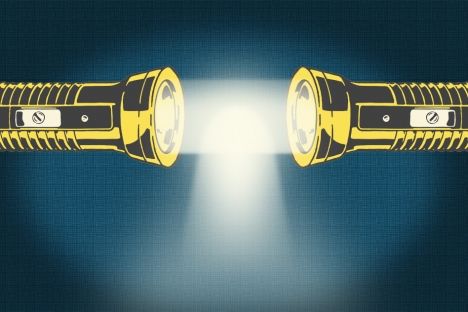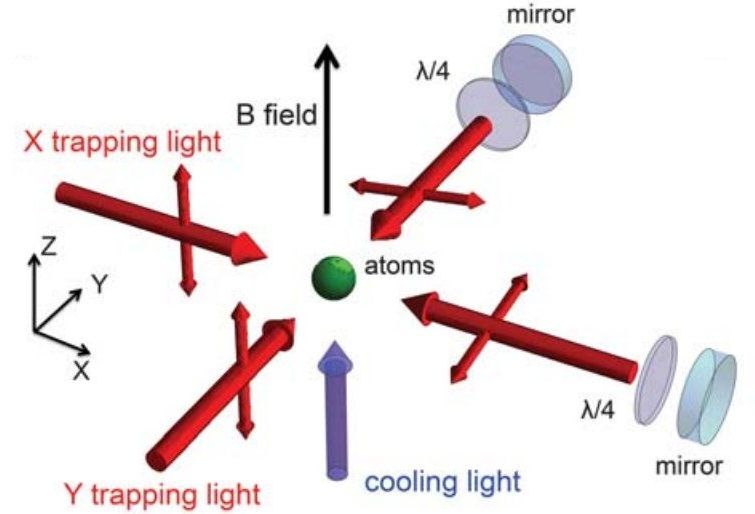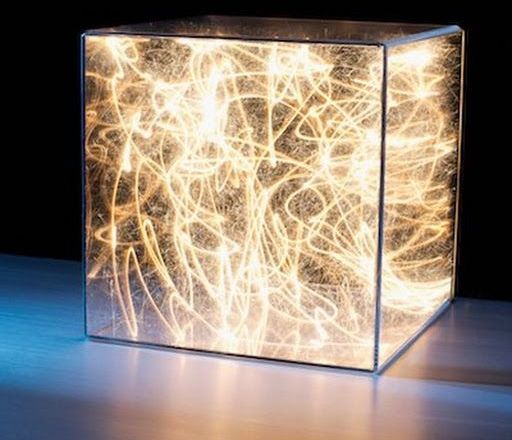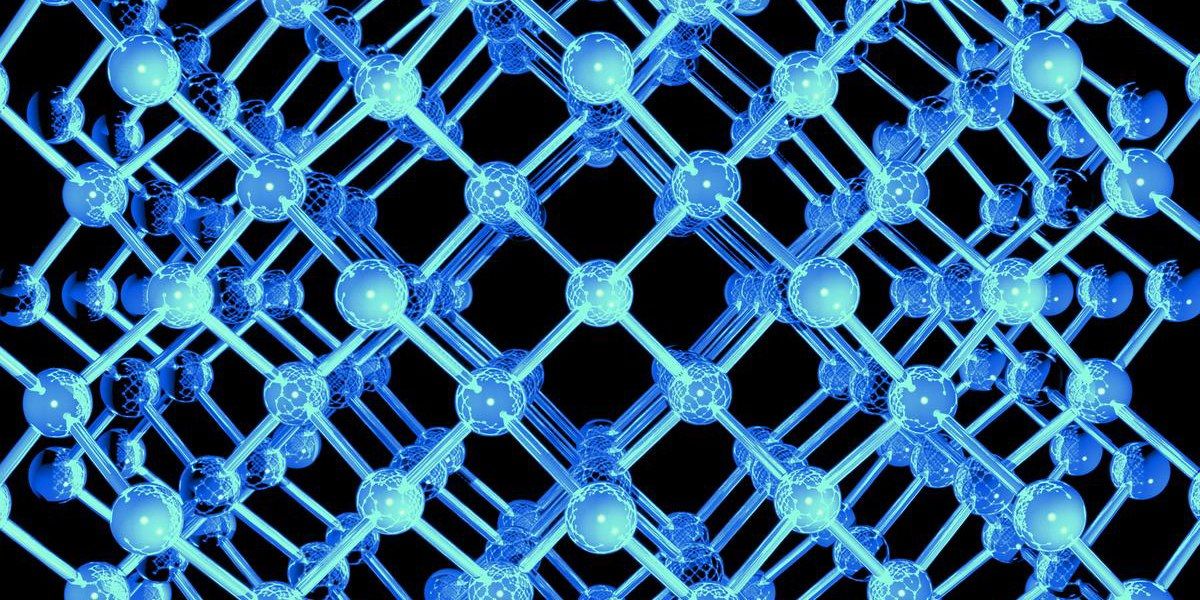Archive for the ‘quantum physics’ category: Page 682
Feb 17, 2018
Physicists develop faster way to make Bose-Einstein condensates
Posted by Shailesh Prasad in categories: particle physics, quantum physics
The world of an atom is one of random chaos and heat. At room temperatures, a cloud of atoms is a frenzied mess, with atoms zipping past each other and colliding, constantly changing their direction and speed.
Such random motions can be slowed, and even stopped entirely, by drastically cooling the atoms. At a hair above absolute zero, previously frenetic atoms morph into an almost zombie-like state, moving as one wave-like formation, in a quantum form of matter known as a Bose-Einstein condensate.
Since the first Bose-Einstein condensates were successfully produced in 1995 by researchers in Colorado and by Wolfgang Ketterle and colleagues at MIT, scientists have been observing their strange quantum properties in order to gain insight into a number of phenomena, including magnetism and superconductivity. But cooling atoms into condensates is slow and inefficient, and more than 99 percent of the atoms in the original cloud are lost in the process.
Continue reading “Physicists develop faster way to make Bose-Einstein condensates” »
Feb 17, 2018
The Quantum Internet Has Arrived (and It Hasn’t)
Posted by Genevieve Klien in categories: computing, internet, quantum physics, security
Networks that harness entanglement and teleportation could enable leaps in security, computing and science.
- By Davide Castelvecchi, Nature magazine on February 16, 2018
Feb 16, 2018
Thinking Outside the Quantum Box
Posted by Genevieve Klien in category: quantum physics
Feb 15, 2018
Intel just put a quantum computer on a silicon chip
Posted by Shane Hinshaw in categories: computing, quantum physics
![]()
A Dutch company called QuTech, working with Intel, just pulled off a silicon chip-based quantum computer. The future’s looking good for spooky action.
Feb 15, 2018
New form of light: Newly observed optical state could enable quantum computing with photons
Posted by Genevieve Klien in categories: computing, particle physics, quantum physics, weapons
Try a quick experiment: Take two flashlights into a dark room and shine them so that their light beams cross. Notice anything peculiar? The rather anticlimactic answer is, probably not. That’s because the individual photons that make up light do not interact. Instead, they simply pass each other by, like indifferent spirits in the night.
But what if light particles could be made to interact, attracting and repelling each other like atoms in ordinary matter? One tantalizing, albeit sci-fi possibility: light sabers — beams of light that can pull and push on each other, making for dazzling, epic confrontations. Or, in a more likely scenario, two beams of light could meet and merge into one single, luminous stream.
It may seem like such optical behavior would require bending the rules of physics, but in fact, scientists at MIT, Harvard University, and elsewhere have now demonstrated that photons can indeed be made to interact — an accomplishment that could open a path toward using photons in quantum computing, if not in lightsabers.
Feb 15, 2018
These Perfectly Imperfect Diamonds Are Built for Quantum Physics
Posted by Genevieve Klien in category: quantum physics
Feb 14, 2018
Quantum computers ‘one step closer’
Posted by Genevieve Klien in categories: computing, particle physics, quantum physics
Quantum computing has taken a step forward with the development of a programmable quantum processor made with silicon.
The team used microwave energy to align two electron particles suspended in silicon, then used them to perform a set of test calculations.
By using silicon, the scientists hope that quantum computers will be more easy to control and manufacture.
Feb 12, 2018
Light controls two-atom quantum computation
Posted by Shailesh Prasad in categories: mathematics, particle physics, quantum physics
Scientists have demonstrated mathematical operations with a quantum gate between two trapped atoms that is mediated by photons.
Feb 11, 2018
Free-fall experiment could test if gravity is a quantum force
Posted by Genevieve Klien in category: quantum physics
The effort to reconcile general relativity with quantum mechanics always hits one snag: gravity. An experiment could finally tell us if it is a quantum force.

















